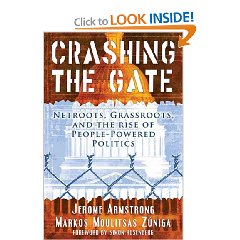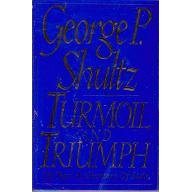1) That horizontal knowledge, peer to peer and distributed network knowledge, is quickly burying bureaucratic “top down” or vertical knowledge.
2) That “technological capitalism,” the author's term, enables the information works to control the means of production, finally achieving what I call “communal capitalism.”
3) Against bureaucracies, terrorists have the learning curve advantage. Against civilians, they did not.” The author is referring to the fact that the entire US intelligence and defense apparatus failed to stop the first two 9-11 planes whose attack was two years in the making, but citizens armed with a cell phone figured it out in 109 minutes and stopped the third plane.
4) Further to this, the author provides a riveting discussion of a story overlooked by the mass media on 9-11, the “improvised Navy” that helped evacuate lower Manhattan in what some call an American Dunkirk.
5) The author discusses the explosion in consumer creation and sharing, and makes a compelling case of suggesting that traditional aggregators of information are dead. Google is likely to die in the next five years, but something after Google will help structure, filter, link, and monetize. We are in a transition period and need to reach a place where all historical information, all current scholarship, and all future online publications, both formal and informal, can be leveraged through semantic web and synthetic information architectures.
Now to bring this full circle, I want to mention just a couple of other books, because what is happening in the USA today, ahead of the rest of the world, are three things:
1) The public was sparked by Howard Dean, and now is becoming empowered and mobilized. Citizen advocacy groups are integrating localized observation, information sharing technologies, and collective brainpower to the point that they are more competent and quicker than the government or corporate or media bureaucracies.
2) This Collective Intelligence or Army of Davids is becoming enraged over the end of the cheap oil (which the government knew about in 1974-1979 and concealed in order to keep the bribes from oil companies coming), the end of free water, the rise of pandemic disease, the decline in education and morality and responsible foreign policy.
3) Intelligent observations are being made by stellar thinkers just as Jeffrey Sachs The End of Poverty: Economic Possibilities for Our Time and C. K. Prahalad The Fortune at the Bottom of the Pyramid: Eradicating Poverty Through Profits (Wharton School Publishing Paperbacks) with the result that this Collective Intelligence, now mobilized and incited by the Bush Administration, sees a better way–a path into the future where we spend on peace and ending poverty, instead of war and invading other countries on a web of lies.
Bottom line: this is a useful book that provides a fragment of the total mosaic. I am very glad I got it, and hope that this review will not only lead you to buy the book, but to read my other reviews, which in the aggregate, provide a free graduate education on global issues in about two hours.
EDIT of 11 Dec 07: See also, with reviews:
Group Genius: The Creative Power of Collaboration
The Global Brain: Your Roadmap for Innovating Faster and Smarter in a Networked World
Smart Mobs: The Next Social Revolution
The Wisdom of Crowds
The Wealth of Networks: How Social Production Transforms Markets and Freedom









